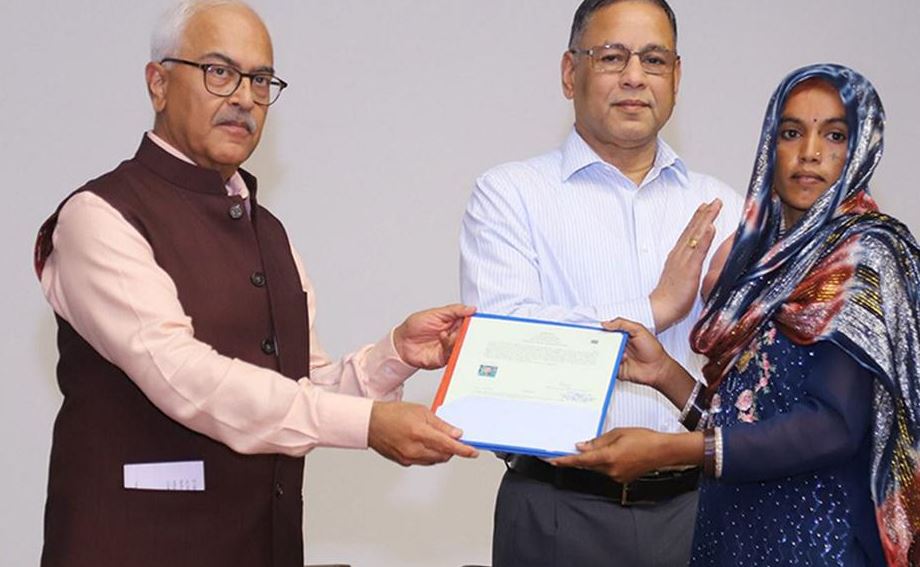Revisiting the Citizenship Amendment Act: An Overview
In light of persistent challenges faced by applicants under the Citizenship Amendment Act (CAA), the Union Home Ministry is considering amendments to simplify the documentary requirements. This initiative aims to address the concerns of probable beneficiaries, especially those who arrived from Bangladesh without proper documentation. The ongoing discussions focus on revising Schedule 1A, which currently mandates applicants to furnish documents proving their citizenship from Bangladesh, Pakistan, or Afghanistan.
Addressing Applicants’ Concerns
A senior government official revealed that deliberations are underway to amend the stringent requirements of Schedule 1A. This schedule necessitates the submission of any of the nine specified documents issued by government agencies in the respective countries for acquiring citizenship under Section 6B of the CAA.
“The CAA is designed to be a facilitative law. Its spirit must be understood by those processing the applications. If the required document is not immediately available, it can be submitted at a later stage, and officials may note it as ‘pending for processing’. This law is enabling by nature,” an official explained.
Focus on West Bengal: Political and Social Implications
In West Bengal, where a significant number of Hindu migrants from Bangladesh reside, the complexity of CAA documentation has been a critical issue. Jagannath Sarkar, BJP MP from Ranaghat, proposed that in the absence of Schedule 1A documents, applicants should be allowed to submit eligibility certificates issued by recognized religious institutions such as the Ramakrishna Mission, Bharatiya Seva Sangh, or Anukul Chandra Ashram.
Simplifying the Process: A Practical Approach
“The confusion around CAA rules and the Trinamool Congress’s campaign that applying under CAA would turn applicants into refugees have been counterproductive,” Mr. Sarkar noted. The campaign argued that many Bangladeshi migrants already possess voter ID and Aadhaar cards, negating the need for reapplication for citizenship.
Countering this narrative, Mr. Sarkar emphasized, “Having a voter ID does not equate to citizenship. Many migrants from Bangladesh, fearing religious persecution during the 1971 Liberation War and subsequent years, obtained voter IDs through unofficial means. They face significant issues, such as high bribery demands for jobs and passports, as their citizenship status remains unrecognized. We are informing people that in the absence of Schedule 1A documents, an eligibility certificate from certain religious institutions will suffice.”
Ensuring Security and Preventing Misuse
Mr. Sarkar highlighted the importance of maintaining security while simplifying the process. “The simplification should not be exploited by inimical elements from Pakistan, Bangladesh, and Afghanistan who might attempt to change their identities. Schedule 1A was introduced to prevent such scenarios. While no document is compulsory, the eligibility certificate can serve as a sufficient substitute, and thorough verification will be conducted by officials to ensure persecuted Hindus receive citizenship,” he stated.
Beneficiaries and the Path Forward
In West Bengal alone, approximately 2.8 crore people from the Matua and Namasudra communities stand to benefit from the CAA. The 2019 amendment to the Citizenship Act, 1955, facilitated citizenship for undocumented migrants from six non-Muslim communities—Hindus, Sikhs, Buddhists, Jains, Parsis, and Christians—from Afghanistan, Bangladesh, and Pakistan who entered India on or before December 31, 2014. The amendment also reduced the required period for naturalization from eleven years to five years.
Despite the intent to provide relief, the CAA has faced opposition from several states, including West Bengal, Tamil Nadu, and Kerala. To bypass the opposition from state governments, the Ministry constituted committees led by Census and postal department officials to adjudicate citizenship applications. Applications are filed online, with the Intelligence Bureau (IB) handling security verifications.
The Way Forward: Balancing Facilitation and Security
The government’s endeavor to simplify CAA rules underscores the need to balance facilitation and security. By ensuring the process is accessible while maintaining stringent checks, the CAA can fulfill its objective of providing refuge to persecuted minorities without compromising national security.
Conclusion
The proposed amendments to the Citizenship Amendment Act represent a crucial step towards addressing the concerns of undocumented migrants seeking citizenship. Simplifying the documentation process while maintaining security protocols is essential for ensuring that the CAA serves its intended purpose. As discussions continue, it is imperative for the government to consider the practical challenges faced by applicants and implement changes that uphold the spirit of the law while fostering inclusivity and security.
Summary:
| Key Learning Points |
|---|
| Simplification of CAA documentation requirements under consideration. |
| Amendments to Schedule 1A to facilitate easier submission of documents. |
| West Bengal’s significant migrant population and political implications. |
| Eligibility certificates from religious institutions as alternative documentation. |
| Ensuring security while preventing misuse of simplified processes. |
| Potential beneficiaries and the historical context of CAA amendments. |
| State opposition and federal measures for implementation. |
| Balancing facilitation with security in CAA implementation. |
Soumya Smruti Sahoo is a seasoned journalist with extensive experience in both international and Indian news writing. With a sharp analytical mind and a dedication to uncovering the truth, Soumya has built a reputation for delivering in-depth, well-researched articles that provide readers with a clear understanding of complex global and domestic issues. Her work reflects a deep commitment to journalistic integrity, making her a trusted source for accurate and insightful news coverage.



